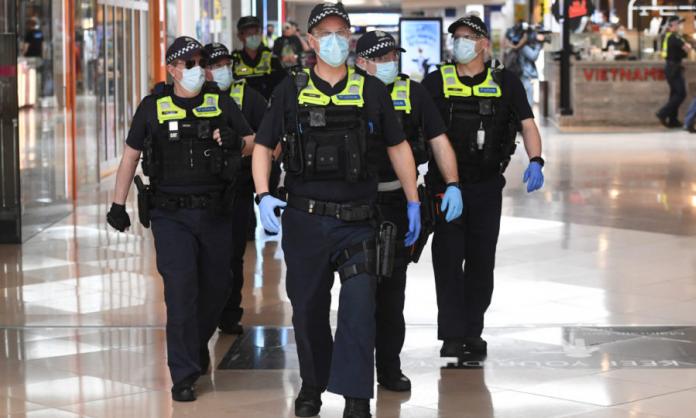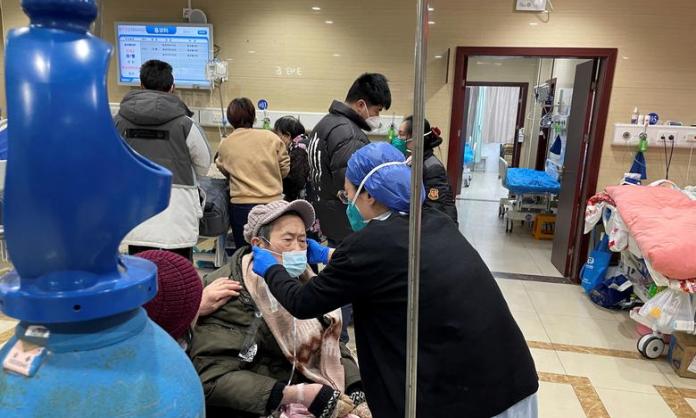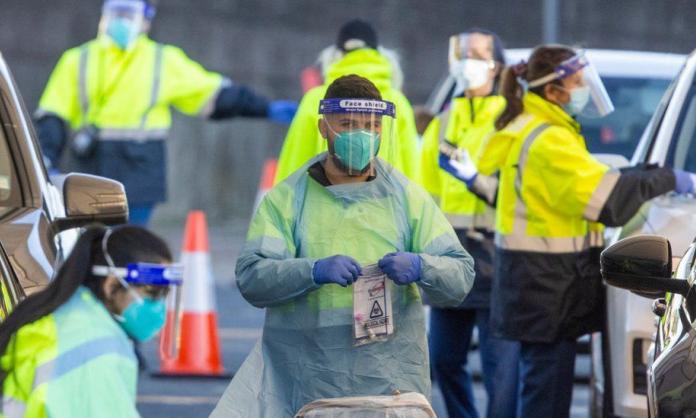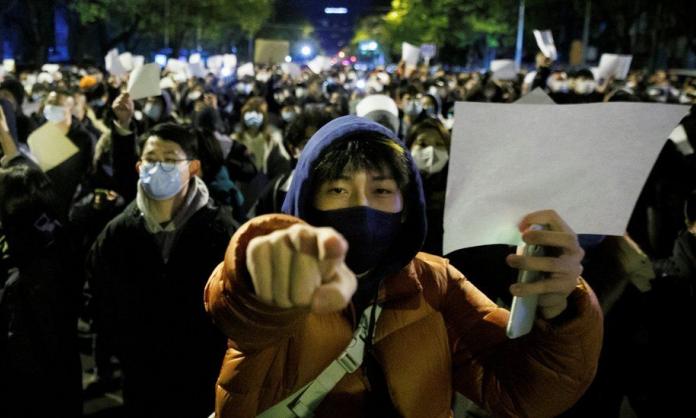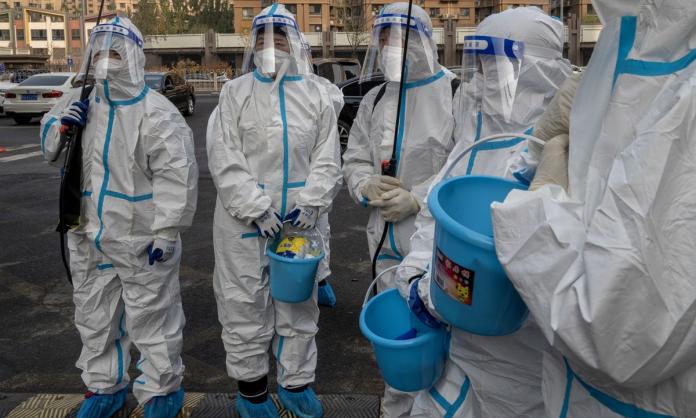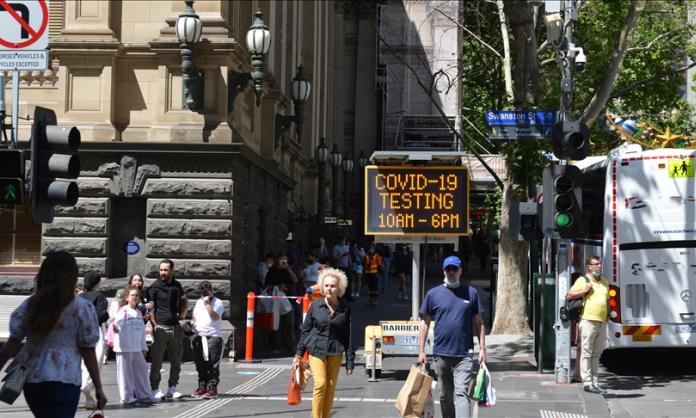An anti-lockdown protest in Melbourne’s Chadstone shopping centre over the weekend was farcical. At least, the police response was. A smattering of demonstrators gathered on the first floor outside Coles supermarket for a shortened rendition of John Farnham’s “You’re the voice” to object to the ongoing economic and personal disruptions caused by the state’s coronavirus lockdown.
There were far fewer protesters than shoppers. Yet, as if to prove the point of some of the more unhinged in their ranks—that Victoria is descending into a dictatorship under Premier Daniel Andrews—the police response was wildly disproportionate. In fact, it was reminiscent of my experience of Hong Kong, where cops for the last ten months have become increasingly “proactive”, often in the name of public safety, in shutting down any hint of civil disobedience before it really starts.
Within ten minutes of the first “We’re not gonna sit in silence, we’re not gonna live with fear”, police had blocked every car exit from the southern hemisphere’s largest shopping complex. Dozens of officers were on foot in the centre and there was a police helicopter overhead. You would have thought someone had been shot and there was now an armed fugitive on the run. But no, this was about stopping people getting too close to each other. Not shoppers, of course, just protesters—as though belting out a bit of Farnsey produces a mutated, ultra-deadly strain of the virus, a feat impossible to replicate getting a price check in aisle three.
The protesters mostly dispersed before the police descended. Some pretended to be shoppers and waited for the cops to leave. They wanted to hold another action at South Melbourne Market, but that crowded location was soon encircled by up to 100 officers (for whom “social distancing” at times appeared to be a foreign concept). More hovered in side streets as a roadblock was set up on Cecil Street. The public order response team had a convoy of perhaps fifteen vehicles nearby.
It was all pretty ridiculous. But is was also pretty sinister—precisely because the easiest way to undermine democratic rights is to get people laughing at the stupidity of the people trying to exercise them, and thanking the police for doing such a great job protecting the rest of us.
Make no mistake, the anti-lockdown protest was not politically supportable. The organisers argue that the United States, where more than 200,000 have died form COVID-19, is proof that restrictive public health measures are not at all necessary. Presumably, they believe that working class people should just accept that making profits for a boss is worth risking death for.
But however spurious their point, those opposing the lockdown have a democratic right to protest, which should not be a casualty of the pandemic. That most people see the value in temporarily trading away some of our freedoms for the greater good of getting this awful virus under control should not lead to cheerleading or turning a blind eye to authoritarianism. Yet that’s exactly what is going on.
It’s not just the heavy-handed treatment of these protests. It’s that much of the pandemic response has been a police response, rather than a health response, in which cops and protective services officers have gained extra powers, in which some of the measures, such as the curfew, have nothing to do with saving lives and in which incitement charges have been used on people organising peaceful protests. Meanwhile, front line hospital staff still cannot access the highest quality protective equipment.
Now, the Labor government is trying to give even more powers to the already power-saturated Victoria Police. The COVID-19 (Emergency Measures) Bill, which is before parliament, will, if passed, introduce a preventative detention regime that, according to Liberty Victoria president Julian Burnside, “appears to have little protections or oversight, and provides far too much discretion to people who may lack the necessary expertise to determine risk, including police officers”.
“The indefinite nature of these powers is exceptional and unlike other preventative detention regimes which contain fixed detention timeframes and strict oversight requirements”, Burnside wrote last week. “While these people have not committed any offence, they do not appear to have the right to challenge a decision to detain them—unlike people accused of criminal offences. Although they could seek judicial review of a decision, that is a costs jurisdiction which would make it difficult for people to challenge their detention.”
It is, in short, an astonishing attack on democratic rights in a state already known for the militarisation of policing, the regular use of chemical sprays as a form of crowd control, the use of move-on orders and enforcing restrictions on movement as preventative measures against protesters. Increased police powers are always objectionable. In Victoria, they have become the norm. Under the cover of the pandemic, and in response to small groups of protesters posing no risk to public health, they even seem to be popular. That is not a good thing for democratic rights.




